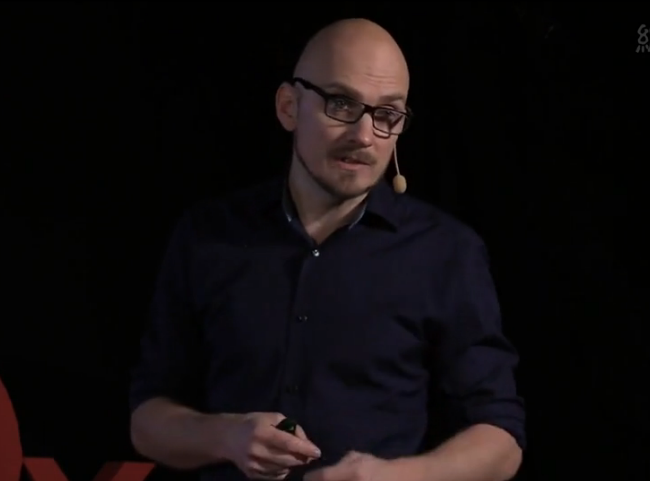So the next experiment, it needs a little bit of a background.
下一个实验需要一些背景知识。
So in Sweden, the political landscape is dominated by a left-wing and a right-wing coalition.
在瑞典,国家的政治事务是由左翼和右翼的联合政府主导。
And the voters may move a little bit between the parties within each coalition,
投票人可能会在每个联盟中的两党之间有一点点犹疑,
but there is very little movement between the coalitions.
但在不同的联盟之间就没有那么多犹疑。
And before each elections, the newspapers and the polling institutes put together what they call "an election compass"
在每次选举之前,报纸或投票机构,合起来拿出一个所谓的“选举指南”,
which consists of a number of dividing issues that sort of separates the two coalitions.
这个包含了一系列的具有分化性的问题,用来分离开两个联盟。
Things like if tax on gasoline should be increased
那些议题包括,比如燃油费是否要增加,
or if the 13 months of paid parental leave should be split equally between the two parents in order to increase gender equality.
或者父母是否应该平均享用那个13个月的产假,以便增加性别平等的机会。

So, before the last Swedish election, we created an election compass of our own.
在瑞典最后一次选举之前,我们自己做了一个选举指南。
So we walked up to people in the street and asked if they wanted to do a quick political survey.
我们走到街上去问路人,问他们是否愿意做一个快速的政治调查问卷。
So first we had them state their voting intention between the two coalitions.
首先,我们让他们在两个联盟之间说出他们的选举倾向。
Then we asked them to answer 12 of these questions.
然后让他们回答这12个问题。
They would fill in their answers, and we would ask them to discuss,
他们会写出他们的答案,然后我会让他们来讨论,
so OK, why do you think tax on gas should be increased?
好,为什么你认为要增加燃油税?
And we'd go through the questions.
我们接着把问题都问完。
Then we had a color coded template that would allow us to tally their overall score.
然后我们用涂有颜色的模版记录他们的总分数。
So this person would have one, two, three, four five, six, seven, eight, nine scores to the left,
因此,这个人将会有1,2,3,4 5,6,7,8,9分记在左边。
so he would lean to the left, basically.
因此,基本上他会倾向于左翼。
And in the end, we also had them fill in their voting intention once more.
最后,我们再让他们填写投票意向。



